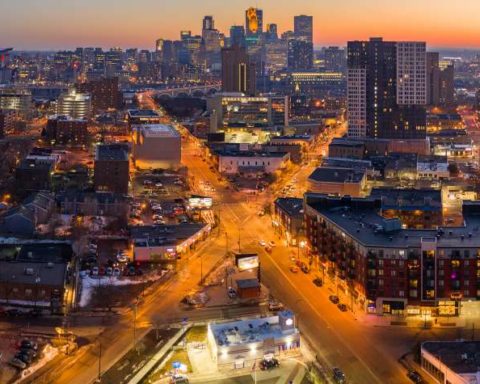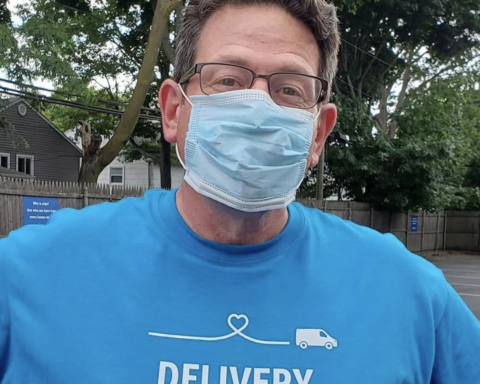Within this section, our team reporters spoke to an array of local and national politicians in order to help shed light on police brutality, protests, and, ultimately, police reform.
What is a piece of legislation you’ve created or helped push that you believe has been the most powerful?
There are many. When it comes to policing, I’m tremendously proud of the recent work I’ve done with my colleagues on the House Judiciary Committee to pass the George Floyd Justice in Policing Act. There’s no question that the American system of policing is deeply flawed and in need of significant, systemic reforms: the changes outlined in the Justice in Policing Act—whether it’s banning no-knock warrants, chokeholds, and racial and religious profiling, holding accountable officers who commit misconduct, establishing a national police misconduct registry, or encouraging departments to meet the highest standards in training, hiring, deescalation, and other best practices—intend to fundamentally reconceive the ways in which our communities are policed. I think there’s real power to that kind of change.
Beyond policing, there are many pieces of legislation that I’ve worked on over my years in Congress that brought meaningful change to people’s lives. Passing the Zadroga Act to deliver much-needed compensation to the victims of 9/11 is one of the accomplishments that I fought the hardest and the longest for—that bill made an amazing difference in the lives of so many. I am also very proud of my work to end the scourge of gun violence—passing legislation to require background checks on all gun sales through the House Judiciary Committee and the full House last year was a moment of progress long overdue and, when it is signed into law, will save thousands of lives.
When it comes to the George Floyd Justice In Policing Act, what the biggest impact you hope it will achieve, especially with it affecting so many facets of how communities and police currently engage?
I’m hopeful that it will shepherd in a new culture of police accountability that, in tandem with the bill’s provisions to prevent the use of excessive force, will significantly erode the patterns of police violence that have caused so much pain throughout our country. Law enforcement must be held to a higher standard and through a national misconduct registry that will stop violent officers from finding new police jobs, mandated anti-bias trainings, compulsory body cameras and much more, that’s precisely what the Justice In Policing Act, should it be signed into law, intends to do.
Ultimately, however, my hope is that it will create a fairer, more just America where people are not policed based on the color of their skin. Too many Americans—especially within communities of color—have lost trust in law enforcement. I hope that by building a safer, more equitable police system, we can find that trust again.
If you had no restrictions, what would be the first bill or piece of legislation you would pass immediately?
I am actually very proud of everything that we managed to include in the George Floyd Justice In Policing Act. It doesn’t need to be contrasted with the Senate’s lackluster police reform bill for its ambition and expansiveness to be apparent—its provisions reforming qualified immunity, banning violent police practices like chokeholds and no-knock warrants, and mandating anti-discrimination training for police officers will constitute the most significant policing reforms Congress in a generation. That said, there is always more work to be done – I look forward to working with my Judiciary Committee colleagues to continue and further our efforts to make our nation safer and more equal for all.
When it comes to police reform, to you, what is the largest issue America needs to confront?
We can’t fix American policing if we don’t talk about centuries of systemic and structural racism: if we hope to build a safer country, we need to confront it head-on. Legislation alone cannot and will not remedy the evil of racism—it needs to be accompanied by individual and community-led efforts to learn and grow from the experiences and traumas of others—but I am hopeful that the Justice in Policing Act will allow us to make progress in identifying and eliminating racism in our policing system. What’s most important, however, is that we don’t allow ourselves to become satisfied with the progress we’ve made and stop pushing for change. We’re at a critical juncture right now: it’s up to all of us to maintain the energy and desire for justice.
What do you recommend someone like me does with their life if I want to bring about the most change — specifically regarding prison or police reform?
Young leaders have always been at the forefront of social movements, which can be seen in the activism around police reform and combating climate change. I began my foray into politics when I was part of a student-led effort to protest the war in Vietnam at Columbia. People would refer to us (at times derisively) as the “West Side Kids” but in the following years, many of us Kids were elected to our local Democratic clubs and later higher offices. Holding electoral office or protesting is not the only way to participate in these efforts – we need enthusiastic leadership in many areas such as policy, research, advocacy work to bring about concrete systemic reforms. You are already doing the important work of identifying the issues which you are passionate about and I would encourage you to keep at it.
What legacy do you hope to leave my generation as a result of your extensive service in our government?
I have always believed that government should be progressive, activist and generous. Government must enshrine important protections for people’s civil rights and civil liberties in our nation’s laws while also providing resources and opportunities to all. The past few years have also highlighted the need for all Americans – elected officials and the public alike – to safeguard the norms and laws of this country. I would hope that my legacy furthers our march toward justice for all Americans by helping to build a foundation for future leaders to build upon.







